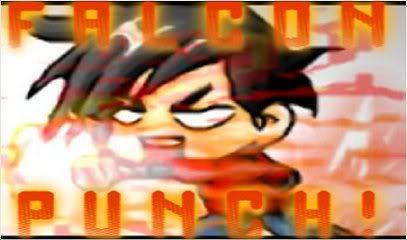|
The orgin of knowledge
|
|
Is it possible to know things outside yourself? If so, by what means does this occur, what is its limitations? Is it as Aristotle and Thomas Aquinas say, that ideas come from our intellect's ability to make abstractions out of individual sense experiences. Or, like Plato, Descartes, and Kant say that we are innately endowed with knowledge and ideas? Plato thought that knowledge is simply recollection of lost truths.(see "Dialogs of Plato") In "Meno" Socrates showed a slave boy with no education could discover the solution to geometry problems by answering questions leading him to the information he already had. Aristotle says "But the human intellect, .... is in potency with regard to things intelligible, and is at first "like a clean tablet on which nothing is written" So then what does the community of Gendou.com think of knowledge and how we obtain it. Then depending on our thoughts is it possible to comprehend and know anything outside yourself. Or, are the things you think you know false because your intellect has interpreted them in its own way and then is your understanding of reality flawed because of it. |
|
Re: The orgin of knowledge
Link |
by
 on 2007-05-07 19:57:38
on 2007-05-07 19:57:38 |
|
To put it simply, knowledge mainly obtained from a source be it your own self or another thing/person. You learn from experience because your mind at birth is a tabula rasa (blank slate-go Latin!). People learn from trial and error. I think that that is how knowledge is obtained. In my mind, there technically is no right or wrong but an ideal and your own interpretation. If you think 2+2=5, fine then if you can prove it. I hope my blathering nonsense helps…!...?  So I drove into a parking lot one time and saw this person pull into a handicap parking spot. When you think handicap, you think wheelchair and whatever, right? So it just ticked me off when I saw the guy come out of the car perfectly fine. So then I ran him over.
So I drove into a parking lot one time and saw this person pull into a handicap parking spot. When you think handicap, you think wheelchair and whatever, right? So it just ticked me off when I saw the guy come out of the car perfectly fine. So then I ran him over. |
|
Re: The orgin of knowledge
Link |
by
|
|
Would we not need to look into what knowledge is first composed of in order to look into origins? or is that the other way around? ?_?
believe
in the intangible for what is more intangible than a god but God himself? GodSpeaks.com |
|
Re: The orgin of knowledge
Link |
by
|
|
We are not born into this world full of ideas. I saw my good friend's newborn baby the other day. Little Silas clearly had sensory experiences, but has not yet learned how to make sense of them. To me, knowledge is an ordered response to Aristotle's sensory experiences. Socrates' slave boy demonstrates how the human mind can order the incredible volume of sensory input of everyday life down to the concise logical laws of geometry. Most of nature's rules can be deduced from such everyday experience, with the exception of laws who's ramifications are only detectable in high-energy particle collisions. Unlike celeriter, I find it more fitting to credit the knowledgeable mind as the source of knowledge. Knowledge passed down from brain to mouth to another brain, or brain to keyboard to another brain, as the case may be, is just information. Once it is put into context, then it becomes knowledge. Well, that's a bit abstract, but, take the example of the laws of nature. Wether you read it in a book or not, everyone is knowledgeable of gravity. Everyone experiences it. In ancient times, people talked about it much differently, and neglected to notice things like the moon's gravitational effect, etc. But, the basis of knowledge, that experience in everyday life, was there. I think it a dangerous analogy to consider the ignorant brain as a clean slate. When it comes to out-of-the-box thinking, ignorance can be helpful. This is why young people are full of novel, albeit sometimes ill-considered, ideas. The brain, however, does not work quite like a tablet. It works more like a sieve, filtering out things that, for one reason or another, get trapped. The majority of our sensory experience is ignored. We learn and adapt as we grow from infancy, and lean to focus our thoughts into a rational process that gets us reward and avoids pain. I don't buy the philosophical quibble that our imperfect minds can't intemperate themselves. If I can see myself in a mirror, and tell that fool to comb his hair, then I can objectively explore the workings of my own mind as far as I have the patience and will to do so. It is, granted, quite challenging to explore one's own thought process, but it can be objectively done, just as we can explore our other unconscious biological processes. Take a moment to examine your breathing. You'll notice the pattern has changed once you take notice of it. Keep at it until you can, from a "distance" examine it without interfering. Same with your blinking. Or, for that matter, your impulse to eat, drink, or play hide the sausage. Upon examination, you'll be delighted with a whole world of new information your brain let right through the filter! 


|
|
Re: The orgin of knowledge
Link |
by
 on 2007-06-08 00:29:31
on 2007-06-08 00:29:31 |
I agree with Gendou. We weren't born with knowledge. We get it through experience, whether it is taught to you, or you learn it yourself.  |
|
Re: The orgin of knowledge
Link |
by
 on 2007-06-13 23:54:12
on 2007-06-13 23:54:12 |
|
Well the idea of knowledge can be an interesting topic to explore. If you take it from a spiritual perspective that we all come from one grand scheme that you may consider that we all have our knowledge locked away until a catalyst unlocks it, whether this be an action, an experience or a book that somehow shows us how to use what’s already inside us. This however is not my own thoughts but it still deserves a look over. I personally agree with Gendou, the fact of knowing against understanding. Just because we experience something does not mean we necessarily grasp the concept behind it nor have use in applying it to other activities. It takes a great amount of self thought to draw together the collected ideas we learn from our experiences and create a more complicated process for something outside our immediate knowledge. The problem is how do you know knowledge is accurate? You can offer proof surely, but would you then need to offer proof for your proof? Unless something relates specifically back to a law that can not be broken by human ingenuity then how can you be sure any traditional facts are true? But then you also have to take into account how someone interprets the proof at hand, what bias are they using? If someone wants to believe in something strong enough then they will surely find proof where there is none, while someone who does not will find any proof when it's concrete. The fact is we all go into information on a bias from the experiences we have had. We learn in different ways and take different contexts from anything presented to us. The way we shape and learn the textbook knowledge and the verbal representation of knowledge can change in meaning between numerous people. So knowledge itself must therefore be biased correct? So in a sense the origin of knowledge and the use of knowledge varies from person to person, so which knowledge do you want to know the origin of? As for understanding what is outside our minds it is impossible on a personal level. If we try and understand what is outside our minds we must take observations and interpretations in an attempt to rationalize the meaning behind it. In that case we are only rationalizing the knowledge at our immediate disposal which is in our minds. Since our minds act on a bias we can’t count on it to accurately depict the same meanings and interpretations as the one who created it, unless the experiences were whole the same. Take a painting for example. Countless people interpret and try and explain what the painter was thinking or trying to depict by analyzing the times, the figures. They use abstract and logical means but can never fully flush out the meaning unless thinking from the exact point of view as the artist. As for understanding the outside world on a zoomed out perspective it is possible. We can logically understand the laws and concepts behind the world rather then the meanings as a collective understanding. We can learn the laws and concepts of geometry or science but can’t understand why they were made that way or what meaning is behind them. That’s all I guess, just my opinion of course.  |
|
Re: The orgin of knowledge
Link |
by
|
|
I believe this is a Bhuddist saying: We are all God. Each of us knows all, but we must first quiet the mind for the heart to tell us what it has known the whole time. (extreme paraphrase) Put simply, we know things instinctively, from birth, the same way our brains automatically carry out activities without us being conscious of them, such as breathing or heartbeat. The only problem with the all-knowing idea is that the knowledge would have to have been obtained by another being or entity first, which raises the question: How did He/She/It obtain said knowledge? |
|
Re: The orgin of knowledge
|
|
i think it's a bit of both. we're all born with our basic animal instincts, and the rest is learned through experience. wasn't tabula rasa locke's idea? |
|
Re: The orgin of knowledge
|
|
"I believe this is a Bhuddist saying: We are all God." Actually if memeory serves, this is a Hinduistic belief, Buddist believe that there is an area of enlightenment that all indviduals are meant for and until we reach that area, we are reborn depending upon the amount of good and bad karma that we had during our former life. ---isnt college cool! |
|
Re: The orgin of knowledge
Link |
by
 on 2007-09-10 05:48:15
on 2007-09-10 05:48:15 |
|
Knowledge is power. The more u have, the better u are. We were not born with knowledge, but rather, instincts. Knowledge can only be obtained through experience and through learning from others. The origin of knowledge is still a mystery to me. This may be answered through religious means though. ^^  |
|
Re: The orgin of knowledge
|
isn't the process of examining your brain called metacognition? I've been told that it's defined as " thinking about your thinking".  wooo maplestory
wooo maplestory |

